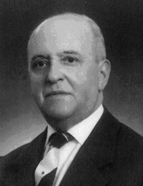

It is no coincidence that the author’s first published investigation, in 1944, focused on Queen Maria Francisca of Savoy. That same year, he published the booklet O Problema do Descobrimento da Madeira [The Problem of the Discovery of Madeira], in which he applied methodological procedures grounded in document criticism ( O problema do Descobrimento da Madeira , 1944, p. 45). In 1945, he wrote the preface to História de Portugal Restaurado [History of Portugal Restored] by the Count of Ericeira, praising it as an exemplary model of narrative history. In 1947, the historian returned to political history with A deposição de D. Afonso VI [The Deposition of King Afonso VI], where he sought to blend scientific erudition with accessibility (Preface to A deposição de D. Afonso VI , 1947, p. 13). His work often combined biographical studies with social analyses. The author also explored the local history of his birthplace, exemplified by Movimentos Políticos no Porto do século XIX [Political Movements in 19th Century Porto], published in 1957. In 1961, he critically examined the Iberian Union in a work later reissued under the same title, Ainda a União Ibérica [Still the Iberian Union] ( Ainda a União Ibérica , Braga, 1961). In 1966, he reaffirmed his commitment to methodological rigour, insisting on the separation of historical reality from fantasy. In this work, Realidade Histórica e Fantasia [Historical Reality and Fantasy], he criticised the defence of nobility based more on genealogical origins than on intelligence and ethics ( Bracara Augusta , vol. XX, fasc. 43–44 (55–56), 1966, pp. 3–24).
The author has always been interested in literature. In 1950 he published a book on A vida Rural no Romance português [Rural life in the Portuguese novel]. Portuguese culture also captured Álvaro Dória’s attention, leading him to write about the Geração de 70 [Generation of 70]. He regarded it as a brilliant period in Portuguese intellectual history, appreciating its democratic ideals but lamenting its limited outcomes beyond the political sphere ( Ainda a Geração de 70 , 1975, pp. 15-16). Drawing on his professional background, Álvaro Dória authored numerous articles on the history of accounting, mainly for the Revista de Contabilidade e Comércio [Journal of Accounting and Commerce] from the 1940s onwards. These articles often dealt with familiar topics, such as his father, Raúl Dória, and his school ( O Prof. Raul Dória e a sua escola , pp. 194-208; 236-264). He also highlighted figures like the accountant Ricardo de Sá in his writings.
This work is financed by national funds through FCT - Foundation for Science and Technology, I.P, in the scope of the projects UIDB/04311/2020 and UIDP/04311/2020.
